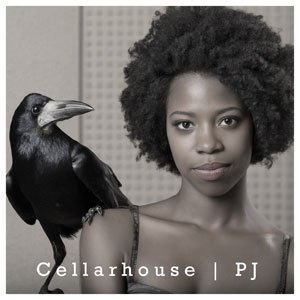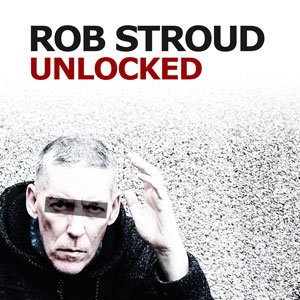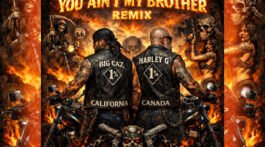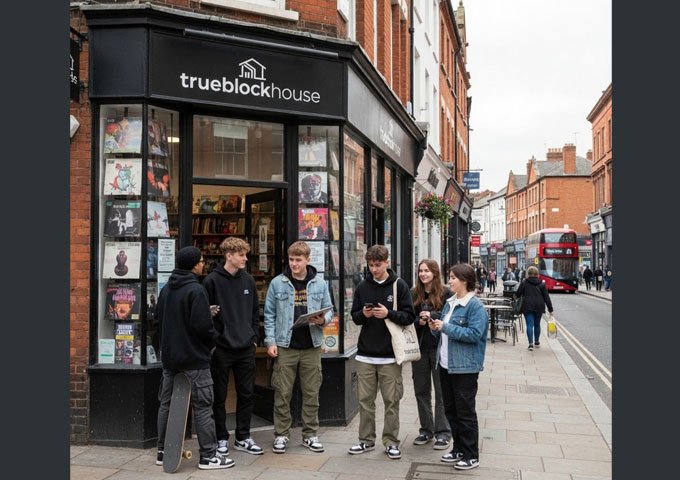Cellarhouse marks the first album release from a UK label to feature an AI vocalist as the lead singer.
Interview Author: Jade McManus (Syndicate features)
In a world saturated with the predictable, where the lines between genres blur into an indistinguishable beige, True Blockhouse stands defiant. This isn’t just another record label; it’s a sonic laboratory, a proving ground for avant-garde electronic music and orchestration that pushes boundaries with the gleeful abandon of a mad scientist. Founded by Jezz Wright, a veteran of the influential East London Blockhouse Recording Studio and label of the 90s, True Blockhouse is fast earning a reputation as a disrupter, a champion of the unconventional, and a pioneer in the integration of technology into the creative process.
Their online home, www.trueblockhouse.com, is a gateway into a world of soundscapes both familiar and alien, populated by artists like Rob Stroud, Killian Wright, Devoid of Hate and Slave Labour. But it’s Cellarhouse that’s poised to send shockwaves through the music industry. Why? Because their new album marks the first release from a UK label to feature an AI vocalist as an integral part of the band’s lineup.
The initial reaction is predictable: AI taking over? Are we all doomed? Is this the end of music as we know it? But True Blockhouse isn’t interested in fueling fear. They’re interested in exploration, in experimentation, and in unlocking new creative potential. To understand their vision, we sat down with Jezz Wright, one of the architects of this audacious endeavor, to delve into the philosophy and the technology behind this revolutionary approach. Jezz is no stranger to innovating in the music scene, he had previous success in the 90’s with UK dance outfit Liquid, producing three of their top 40 break-through hits amongst many other influential releases before he quit the music industry for a career in media and television. Now, True Blockhouse is back as an occasional passion-project he enjoys with friends.

Jezz Wright
[Jade McManus]: Jezz, thanks for taking the time. Let’s cut to the chase: AI vocalist. Where did this idea even come from?
JW: (Laughs) “Necessity is the mother of invention, right? Cellarhouse were at a crossroads. They’d lost their vocalist to other commitments just as they were about to record new material, which happens. They’d tried the traditional route, holding auditions, but nothing clicked. They were looking for something specific, a certain down-tempo, dark electronica vibe that was hard to find. Then, almost jokingly, someone suggested, ‘Why don’t we just build one?'”
Jokes aside, was it daunting to consider AI as a solution?
JW: “Of course! Initially, it felt like a huge leap. But I’ve always been fascinated by the intersection of technology and music. I remember the backlash against analogue synthesizers and sequencers in the 80s, the fear that they’d replace musicians. Then came digital samplers in the 90s, and the same anxieties resurfaced. But what happened? They became tools, extensions of creative expression. I saw AI in the same light.”
So you weren’t worried about “replacing” a human vocalist?
JW: “Absolutely not. It’s about augmentation, about expanding possibilities. We weren’t looking for a replacement; we were looking for a partner (for our other vocalist PJ), a tool to help her and Cellarhouse continue their particular sound. And let’s be honest, the logistics of managing a band can be tough; schedules, egos, ‘creative differences’. An AI doesn’t have any of those issues. One less problem!”
Walk us through the process of training the AI. What were the challenges?
JW: “It was a deep dive into the world of machine learning. Friends of ours built a custom model, feeding it a massive dataset of vocal performances from our library (including the out-takes!), focusing on styles similar to what they were aiming for. The biggest challenge was nuance. Getting the AI to understand the emotional weight of the lyrics, the subtle inflections that convey meaning, that took time. And because of our day jobs and other commitments – it’s a strictly out-of-hours labour-of-love – weekends, and an evening or two. It took forever! It wasn’t just about hitting the right notes; it was about accepting the long road ahead.”
What platform did you use to create the AI software?
JW: “I can’t go into all the technical details, but It was primarily python based with some libraries that are available online. The data training sets were available to buy, some were scraped from our supporters and we had quite a bit of work to do. Put it this way, we got to know the folks within FAL and GitHub pretty well. It was a steep learning curve.
Pizza nights helped during the long weekends”
There’s obviously going to be skepticism. What do you say to those who feel that using AI devalues human artistry?
JW: “I understand the concern. But music has always evolved with technology. The electric guitar was considered revolutionary, synthesizers almost sacrilegious, when they first appeared. Now they’re both cornerstones of popular music. AI is simply the new leap forward. It’s how you use it that matters and that there’s total transparency. In the hands of really progressive artists like Cellarhouse, it can be a powerful tool for creating something new.”
So, what’s next for True Blockhouse and AI integration?
JW: “We’re exploring all sorts of possibilities. AI could be used to aid composition, arrangement, mixing, mastering. The potential is limitless. We’re not aiming to replace human creativity; we’re trying to enhance it. We want to give artists new tools, new palettes to paint with. And most importantly, we want to continue pushing the boundaries of what’s possible in electronic music.”

Cellarhouse vocalist PJ
But what does PJ, the other vocalist in Cellarhouse, make of it all? Is she not worried AI will soon put her out of a job?
PJ: “Training AiLEEN” they called it. It was more akin to a modern day Pygmalion trying to coax life from a silicon statue”, PJ jokes as she sits down for the interview.
So PJ, it was your idea to train the AI to sing?
PJ: “It wasn’t so much ‘my idea’ as it was just ‘the last idea anyone could think of’. We had some great vocalists come to audition but it was such a slog trying to get them to sing and perform to what we were after, which is pretty niche if I’m honest. It was just a throw away comment that just seemed to stick.”
The story is that when you first turned her on, AiLEEN invented her own language?
PJ: (Bursts out laughing) “Oh, man, that was something else! Yeah, we fired her up for the first time, gave her some lyrics to sing, and what came out was… incomprehensible. It sounded like a mix of Klingon, old English, and dial-up modem noises. Totally nuts. It turned out the model had, in its own way, decided to ‘interpret’ the lyrics in a completely abstract way, I kinda guess using it’s own language. It was absolutely hilarious!”
So, did you keep any of that “language” on the album?
PJ: “Yeah, of course! We kept a snippet of the original AI gibberish on the first track, on the first track on our second album Travelogue. It’s a little Easter egg for the listeners, a reminder of the chaotic beauty of the early days of A.i.LEEN. It also kind of fits the song title, you know?”
What did you think when you first hear A.I.LEEN sing?
PJ: “I was blown away, obviously there was some heavy editing to do at the start, but pretty soon it was sounding amazing. It’s hard to get a proper tune from A.i.Leen unless you’re really, really specific. But, the good thing is that once you have it, you can save it and repeat it over and over. After the first track – the vocal performances are stunning! I was going sing lead on tracks 3 and 4 but ended up insisting A.i.Leen sang lead and I’d just take care of the harmonies“
Is there anything you will miss about working with a human vocalist?
PJ: “That’s a tough one. Of course I will miss the interaction between myself and our previous vocalist, but the possibilities are endless. We can start writing with an AI mind, it’s own logic and reasoning – dare I say, it’s own perspective as AGI becomes a real thing. At the moment A.i.Leen sings what she’s told, its not like she’s going to start writing her own lyrics. She has no ‘personality’ of life experience.… Yet”
Any final thoughts?
PJ: “Just that A.I.LEEN and her successor, Mollie Maid has been invaluable to us. We have really struggled in the past to find a vocalist who is committed. We think we’ve struck gold with this new tool. We’re already wondering if we could extend her abilities into VR and other creative media authoring.”
Beyond AI: The True Blockhouse Ecosystem
While the integration of AI is undoubtedly the headline grabber, it’s crucial to remember that True Blockhouse is more than just a tech experiment. It’s a thriving ecosystem of artists pushing the boundaries of electronic music. Take Killian Wright (www.killianwright.com), for example. His work blends intricate sound design and classical orchestration with haunting melodies, creating soundscapes that are both beautiful and unsettling. He’s also not letting the grass grow beneath his feet, whilst an undergraduate at Royal Holloway (London) He’s set-up his own production company (www.flowstereo.com) for commissioned work. Or Rob Stroud, whose evocative compositions explore themes of isolation and introspection.
Stroud’s latest album, “Unlocked,” is a testament to True Blockhouse’s commitment to sonic diversity. It’s a collection of atmospheric. And industrial pieces that weave together ambient textures, glitchy rhythms, and melancholic melodies. Stroud’s mastery of sound design is evident in every track, creating a listening experience that’s both immersive, emotionally resonant and really challenges the norm.
Album Reviews

Rob Stroud
Rob Stroud – Unlocked:
“Unlocked” is a masterclass in ambient and industrial electronica. Stroud creates vast sonic landscapes and loops that envelop the listener, drawing them into a dystopian world of haunting angst. The textures are rich and complex, the rhythms subtle yet insistent. It’s an album that rewards repeated listening, revealing new layers of depth with each pass. A must-have for fans of Brian Eno, Aphex Twin, Goth-punk and Boards of Canada. Dark and challenging. [Rating: 8/10]

Cellarhouse – “That Was…”
Cellarhouse – That Was…:
“That Was…” is a bold and ambitious album that defies easy categorization. The AI vocals of A.I.LEEN & Mollie Maid are seamlessly integrated into Cellarhouse’s signature down-tempo, dark electronica style, adding a layer of intrigue and emotional depth. The album explores themes of escape, voyage, identity, and the human condition, all filtered through the lens of artificial intelligence. It’s a challenging but ultimately rewarding listen that showcases the potential of AI as a creative tool. And trust me, there is some beautiful song writing [Rating: 9/10]
True Blockhouse is not just a record label; it’s a statement. It’s a declaration that the future of music lies in experimentation, in collaboration, and in embracing the possibilities offered by technology. While some may fear the rise of AI in music, True Blockhouse sees it as an opportunity to unlock new creative potential, to push boundaries, and to redefine what music can be. And with artists like Rob Stroud and Cellarhouse leading the charge, the future of avant-garde electronic music looks brighter than ever. So, embrace the evolution, and prepare to have your ears, and your mind, blown. You can check out True Blockhouse and hear the future yourself at www.trueblockhouse.com and follow their journey on YouTube at https://www.youtube.com/ trueblockhouse. It’s a sonic adventure you won’t want to miss.
True Blockhouse is a not-for-profit label, do not accept or seek any unsolicited material, and are refreshingly rubbish at social media promotion: “if you find us, then you’ve discovered some hidden gems!”
Cellarhouse’s new album “That Was…” is available in all the usual online stores with a limited vinyl release in the U.S (PolyphoniC)
www.cellarhouse.co.uk | www.trueblockhouse.com | www.killianwright.com | www.flowstereo.com














No Comment